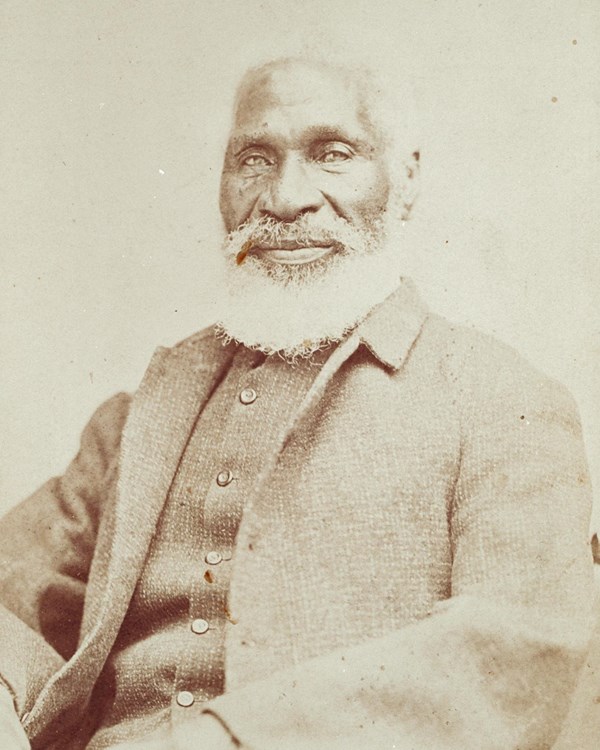Last updated: February 9, 2023
Person
Josiah Henson

Beecher-Stowe Family Papers, Schlesinger Library, Radcliffe Institute.
Born enslaved in 1789 in Maryland, Josiah Henson fled to Canada where he founded the Dawn Institute, a settlement house which taught trades to freedom seekers. A Methodist preacher, he traveled throughout the United States and Great Britain lecturing against slavery. With the Underground Railroad he assisted over two hundred enslaved people in their flight to Canada.
In 1849, Henson published his autobiography entitled The Life of Josiah Henson: Formerly a Slave, Now an Inhabitant of Canada, as Narrated by Himself. In his narrative, he recounted childhood memories of the sale and separation from his father, and later his five siblings. While enslaved in Kentucky, Henson became a Methodist preacher. In September 1830, after an attempt to purchase his freedom and expecting to be sold in New Orleans, Henson, his wife Charlotte, and their four children escaped across the Ohio River into Indiana, reaching Canada on October 28, 1830.
Closing his 76-page autobiography, Henson noted his "many journeys into New York, Connecticut, Massachusetts, and Maine, in all of which States I have found or made some friends to the cause, and, I hope, some personal friends. I have received many liberal gifts, and experienced much kindness of treatment..." Those "friends to the cause" included a number of authors and abolitionists. Harriet Beecher Stowe modeled her Uncle Tom character on Henson. In a journal entry for June 26, 1846, Henry Wadsworth Longfellow vividly describes Josiah Henson’s visit to the his Cambridge home: “In the evening Mr. Henson, a Negro, once a slave, now a preacher, called to get subscription for the school at Dawn, in Upper Canada, for education of blacks. I had a long talk with him, and he gave me an account of his escape from slavery with his family.” Longfellow’s account books record that he gave money to “Father Henson” many times over the next thirty years.
